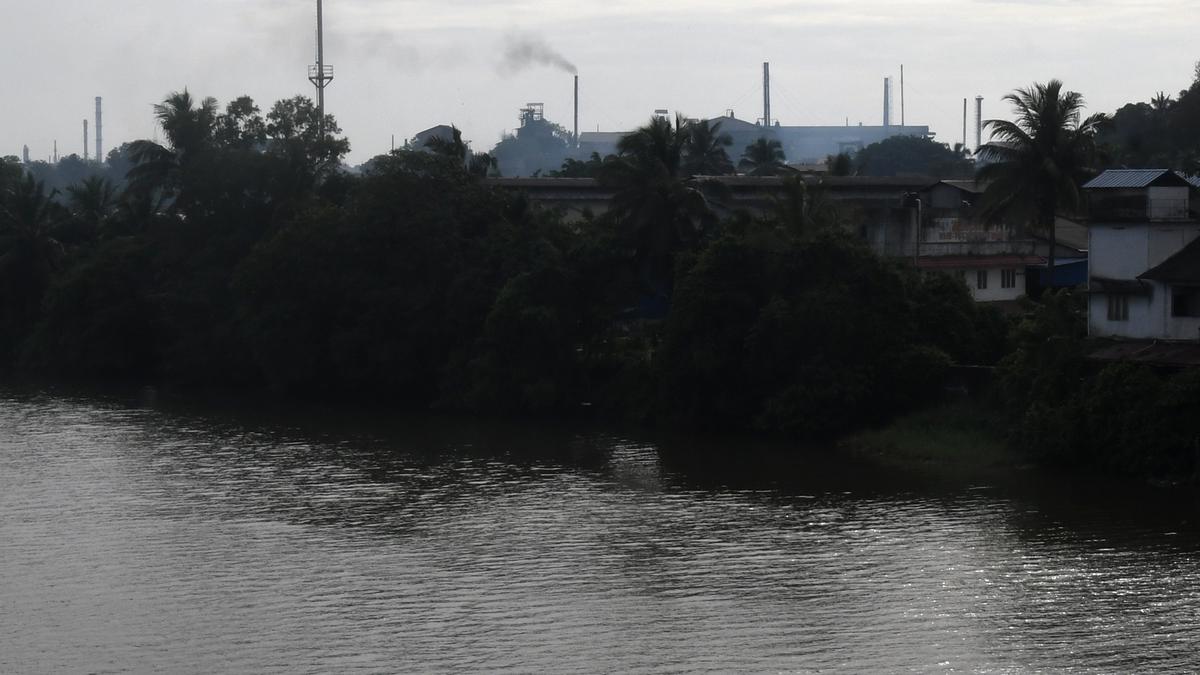
Edayar industrial unit responsible for discoloration in Periyar River, finds Kerala State Pollution Control Board
The Hindu
Kerala State Pollution Control Board finds illegal discharge of pollutants from Sud-Chemie India Pvt Ltd caused discolouration of Periyar river. Tests revealed presence of chromium. Notice issued to company seeking explanation and steps to prevent future incidents. Tests showed parameters within limit, but untreated discharge of effluents through stormwater drain against norms. June 2022 report confirmed illegal discharge of untreated wastewater through 15 drains in Edayar.
The Kerala State Pollution Control Board (PCB) has found that the illegal discharge of pollutants from the Sud-Chemie India Pvt Ltd in the Edayar industrial area has resulted in the discolouration of the Periyar river on September 7.
The change in colour was detected in the river stretch close to the unit. The board officials had taken samples after local residents and activists had alerted them about the discolouration. Tests conducted at the central lab of the board in Ernakulam found the presence of chromium, which indicated that the discharge was from the industrial unit. The illegal discharge was carried out through the stormwater drain meant for release of rainwater, according to the findings by the board.
Notice has been issued to the company management seeking an explanation as to why such an illegal discharge occurred through the stormwater drain. It should also explain the steps taken to prevent such incidents in the future.
The notice was issued as per the relevant provisions under the Water (Prevention and Control of Pollution) Act, 1974. The board also stated that the water near the ‘kadavu’ opposite the spot where the discolouration was detected was found murky at the time of the collection of samples. This may also have impacted the change in colour, it said.
The board officials had collected the samples from the authorised discharge outlet from the industrial unit to the river. The tests showed that the parameters were within the limit. However, untreated discharge of effluents was carried out through the stormwater drain, which was against the environmental norms.
A report prepared by the PCB in June 2022 had confirmed that illegal discharge of untreated wastewater had taken place through nearly 15 stormwater drains in Edayar. Tests conducted by the PCB had revealed exceeding levels of biological oxygen demand (BOD), a proxy for organic pollution, in samples collected from drains leading to the Periyar.













